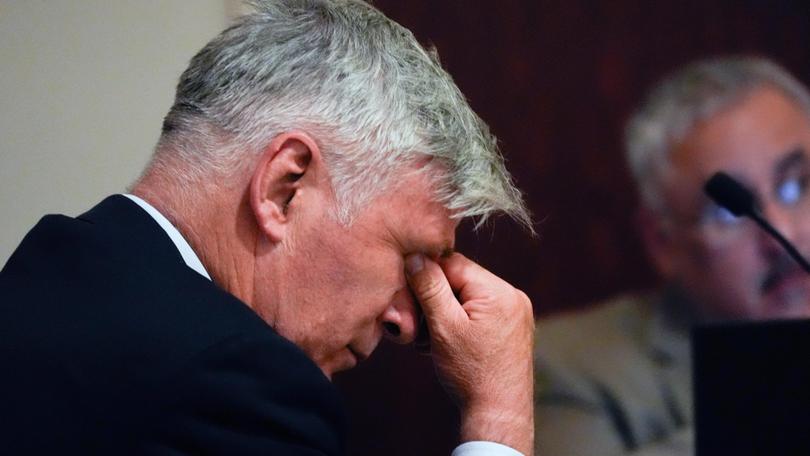Alec Baldwin Rust case: Pretrial hearing determines star’s role as co-producer not relevant to case
Baldwin sat between his lead lawyers in the New Mexico courtroom in a pretrial hearing over the death of Halyna Hutchins on the set of the western, Rust.

Alec Baldwin cut a dejected figure in a New Mexico courtroom, where a judge decided the actor’s role as co-producer was not relevant to the involuntary manslaughter trial over a fatal shooting on the set of the Rust film.
Judge Mary Marlowe Sommer ruled that evidence will not be allowed at trial about Baldwin’s secondary role on the movie, siding with defence lawyers.
“I’m having real difficulty with the state’s position that they want to show that as a producer he didn’t follow guidelines and therefore as an actor Mr Baldwin did all of these things wrong that resulted in the death of Ms Hutchins because as a producer he allowed these things to happen,” Marlowe Sommer said.
Sign up to The Nightly's newsletters.
Get the first look at the digital newspaper, curated daily stories and breaking headlines delivered to your inbox.
By continuing you agree to our Terms and Privacy Policy.“I’m denying evidence of his status as a producer.”
Baldwin, 66, listened as special prosecutor Erlinda Johnson unsuccessfully argued at on the eve of the long-awaited trial that the 30-Rock star’s “role as a producer made him keenly aware of his responsibilities on set” for safety.
“It goes to Mr Baldwin’s knowledge, knowing that his conduct on set was negligent,” she said.
In the courtroom on Monday, local time, Baldwin sat between lead lawyers Luke Nikas and Alex Spiro. He is charged with a single felony count of involuntary manslaughter after a gun held by the actor went off during a rehearsal on set in 2021, killing cinematographer Hayna Hutchins.
The charge punishable by up to 18 months in prison if he is convicted.
He thumbed briefly through papers with a yellow legal pad in front of him, wearing glasses and close-cropped hair.
The trial starts on July 9 with jury selection and is scheduled to last 10 days.
Last week, the judge cleared the way for crucial firearms experts for the prosecution to testify about Baldwin’s handling of the revolver and whether the gun was functioning properly prior to the fatal shooting.
Prosecutors have argued that a state workplace safety investigation, which found serious violations on set, was incomplete, untrustworthy and should be prohibited from the trial.
